| 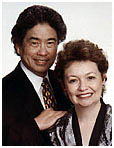 Effective
Teaching...
Effective
Teaching...
by Harry and Rosemary Wong
April
2004
What
to Do When They Complain
Yours truly, Harry, spent an enjoyable two days recently at the
Washington State ASCD (Association for Supervision and Curriculum
Development) meeting. ASCD is the organization that publishes
Educational Leadership.
At the conference I was able to listen to teachers, both new and
retired, administrators, Catholic sisters, college professors, and
a group from Pakistan. All of these people have had many different
responsibilities in their lifetime. For instance, Rick DuFour,
who did a magnificent job speaking about the importance of and the
procedure for implementing a learning community, has been a teacher,
principal, superintendent, and is now a consultant.
No one disagrees with the virtue of a
staff working together as a learning community with the goal of
improving student achievement.
The problem is that we have a culture in which teachers work in
isolation. Regrettably, to get teachers to work together there
will always be – in any group and in any occupation –
a few who complain.
Here’s a lesson if people complain, and this includes students
who complain in class.
No complaining is allowed unless you are
able to offer an alternative.
Thus, the procedure in a class, if a student complains, would be
for the teacher to say, “Your complaint is accepted. Now,
the procedure in this class is if you complain you must be able
to offer an alternative. What is your alternative?”
And say this calmly and with a smile, while you wait for the
student to think and take ownership for solving problems (complaints).
He’s Not in the Classroom
Recently, someone complained that yours truly, Harry, was no longer
in the classroom. Statements like this are the basis for our
“ism” problems, such as racism and nationalism. You
will hear them from students and parents, too. Statements
like these come from people who will tell you that their child can
only learn from someone who is of the same race, national origin,
gender, or religious belief as they are.
I am still a teacher and proud to be a
teacher.
As a teacher, you demean the teaching profession when you intimate
that the only teachers are those who teach in the classroom. Many
teachers have gone on to become college professors, administrators,
corporate trainers, workers in a professional or union organization,
and parents. We all still refer to ourselves proudly as teachers.
All at the ASCD conference in Spokane referred to themselves
proudly and in their hearts still basically as teachers.
I now teach teachers at workshops, conferences, through journal
articles, and on the Internet. Teachers who want to learn,
to make a difference, to become more effective, should develop the
habit of continually “stealing” and learning from others,
no matter who they are.
Don’t be afraid to learn. Knowledge
is weightless, a treasure you can carry easily.
Robert Frost said, “I teach in order to learn.”
And Claude Fuess, a retired teacher said, “I was still learning
when I taught my last class.”
More from Nathan Gibbs
Last month we shared some of Nathan Gibbs’s classroom management
procedures. We continue with those this month. Nathan Gibbs
is a fourth grade teacher in the Newport-Mesa School District in
Southern California.
Remember, these are Nathan’s procedures. These
are procedures and strategies that work for him. They might
work for you, too!
Classroom Procedures for Your Success
Morning Entry Procedures
1. Say "hi" to all your classmates.
2. Greet your teacher as you enter.
3. Enter quietly and in an orderly fashion.
4. Place backpack outside and neatly lined up.
5. Empty your backpack and bring in homework and needed supplies.
6. Turn in homework to be turned in or keep homework at desk to
be graded in class.
7. Start work on your seatwork.
8. Expect a great day.
Desk Procedures
1. Only your notebook, assignment book, textbooks, reading book
and supply box belong in your desk.
2. Toys, food, and loose papers do NOT belong in your desk.
3. Keep hands, feet, paper, books, and pencils off your neighbors’
desks.
4. CLEAN your desk and the area around it before you leave.
5. Push in your chair EVERYTIME you get up.
Line-up Procedure: Leaving Classroom
1. Stand in two equal lines.
2. First excused line starts out of room followed by second line.
3. Wait quietly.
4. NO TALKING IN HALLS.
5. Walk out the door.
End of the Day Procedure
1. Copy down homework.
2. Clean around your desk.
3. Pack assignment book and homework needed.
4. Wait for teachers to dismiss your number to get your backpack.
5. Leave ONLY when dismissed by the teacher.
6. Say "Goodbye" to classmates and teacher.
7. Make sure to be at the bus on time.
8. Plans of how you are going home may not change.
9. Remember to tell your family about your day.
Restroom Procedures
1. Only one at a time may go.
2. Quietly hold up three fingers, and shake your fingers if it is
an emergency.
3. Wash your hands.
4. Come right back and enter QUIETLY.
Drinking Fountain Procedures
1. Drink water at recess, lunch, or when your work is FINISHED.
2. Do NOT line up at the drinking fountain outside or inside the
classroom AFTER the recess bell has rung.
3. Maximum 3 people at sink area at anytime.
4. Wipe the sink after you drink.
Computer Procedures
1. Wash hands before you use it.
2. No more than 2 people at a computer.
3. Refer your questions to the technology assistant.
4. Clean up the area around you before you leave.
5. Log out of all programs.
6. Shut off the computer at the end of the day if you are the last
to use it.
Goals, Yellow Cards, and Red Cards
1. When you receive a goal, put it in your "safe place".
2. At the end of the week have ALL goals totaled for recording.
3. If you receive your first yellow card of the week, put it in
your slot.
4. You must then see the Peer Counselor and put your entry into
the LOGBOOK.
5. Then check in with the recess aide and sit out for that day.
6. If you receive your second yellow card, put your entry in the
LOGBOOK.
7. Report to Mr. Gibbs to receive counseling¬
8. For the remainder of the week sit out at recess after checking
with the duty
aide.
9. If you ever receive the nasty red card, see Mr. Gibbs when instruction
is finished. Choose between the call home and DISCIPLINE ESSAY.
See step 8 and continue for two full weeks.
Peer Council
1. Insure you are talking to all YELLOW CARD RECIPIENTS.
2. Check LOGBOOK to see that they signed it.
3. Report any problems to me.
4. Settle as many disputes at recess as possible.
Substitute Procedures
1. Respect Substitute's Directions and Rules, even if they are not
exactly the same as ours.
2. Remember Substitute is taking my place and is an equal of mine.
3. Be as helpful as possible.
4. Substitute has all Procedures!
5. ASSIST THE SUBSTITUTE IN FINDING SUPPLIES.
Group Work
1. Greet all group members.
2. Be prepared with the necessary tools and resources to be successful.
3. Collaboration is the key to being a successful learning club.
4. All members participate, share, learn from, and help one another.
5. Use same procedures for speaking as you do during class.
6. No one group member is to do all the work.
7. Practice Active Listening.
8. Cooperate.
9. Do your personal best.
Job Procedures
Technology Assistant.
1. Turn on all computers in the morning.
2. Turn on overhead for seatwork.
3. Get TV, VCR, and stereo ready when appropriate.
4. Keep all remotes and supplies in their proper storage areas.
5. Assist others in using computers.
6. Monitor SMART board area and insure no one is playing there.
7. Insure no loose cords are in dangerous positions.
Messengers
1. Collect papers from ends of rows.
2. Take Attendance folder to office in morning.
3. Listen always for Mr. Gibbs when he calls for a messenger.
4. Always write down anything other teachers tell you for Mr. Gibbs.
5. Hand out papers at end of day that need to go home from stack.
Pet Caretakers/Gardeners
1. Water plants when needed.
2. Prune and clean out pots as needed.
3. Rotate plant locations for sunlight each week.
4. Feed pets when needed.
5. Clean out cage or tanks on Fridays.
6. Report any problems or supply needs to Mr. Gibbs.
Organizers
1. Keep paper box, paper drawers, and supply cabinets orderly.
2. Check bookshelf once a week to insure books are in the correct
category.
Cleanup
1. Check trash cans to see if they need dumping outside.
2. Monitor sink area.
3. Check student desks once a week and notify students if they need
attention.
4. Check floors at the end of the day and remind classmates of pick
up rules.
5. Supervise clean up after projects in coordination with Organizers.
6. Help Art Teacher in cleaning up.
7. Dust shelves, computers, TV, and counters weekly.
Personal Procedures for Achievement
Homework Procedure
1. Write homework assignment correctly in Daily Planner.
2. Put your homework in the correct place so you do not forget it
at home!
3. Call "STUDY BUDDY" if you have any questions.
4. Come to school with your homework finished.
5. Read board to learn which assignments should be turned in and
which stay at your desk.
6. Turn in homework into CORRECT Box!
7. Maximum 3 people should be at box area at anytime.
8. Unfinished homework will be completed during the day it was due
(on your time), then turned into LATE Box.
9. Absent homework needs to be turned into the ABSENT box.
Completed Work, Turn-in Procedures
1. Put work in the correct box.
2. Place your work inside, and make sure that it is facing the same
way as the others.
3. Organizers must order papers by student ID number.
4. Start Finish Work Assignments on board.
How to Correct Assignments
1. Have assignment finished.
2. Make sure it is ALL legible.
3. Make sure the correct heading is on the top of your paper.
4. Switch papers with your neighbor.
5. Listen for Mr. Gibbs.
6. Get your correcting implement.
7. Put an "X" next to something that is INCORRECT.
8. Leave correct items without markings.
9. Know what kind on grade to place at the TOP of the assignment.
Either a number correct over the total number completed or a percentage.
Mr. Gibbs will tell you.
10. Make sure that all your questions and concerns have been answered
after grading has taken place and before the assignment is turned
in to the teacher.
How To Fill Out Student Planner
1. Copy everything WORD for WORD from the board.
2. Ask Mr. Gibbs if you are unsure what something means.
3. Check on status of long-range projects everyday.
4. Never leave to go home without it completed.
5. Never come to school without it.
6. Have parents sign off each evening showing they have seen it.
Missing a School Day Procedure
1. Note that you have as many days as you were absent to make up
assignments.
2. You are responsible for your work -- not the teacher, not your
friends, not your parents.
3. When you return, look in your file under your number for assignments.
4. Ask Study Buddy to help you understand work you do not understand.
5. Reschedule with the teacher any tests or quizzes you may have
missed within 2 days of returning.
6. Ask the teacher for clarification of assignments during a break
time if you still do not understand.
7. Be responsible and take control.
8. If you do not ask for clarification, it will be assumed you understand.
9. Work not turned in will result in a zero.
10. All late work is turned into the LATE Folder in the Folder section
of the classroom. Late work turned into some other place may be
lost or not graded.
Learn to Learn From Everyone
The profession should be proud of its Nathan Gibbses. People like
him share and offer alternatives to those seeking help. Nathan,
like the children you bring up at home and students you guide in
your classrooms, is going places in our profession. He
is a learner and a leader.
The typical worker will change jobs twelve times in his or her
career.
The typical teacher will change grade
levels, subjects, or assignments five or six times in his or her
career.
Be wary of those who complain that they can only learn from someone
who teaches the same grade level or the same subject. If you
are a new teacher, for your sanity understand that your first assignment
will not be your last assignment. Please read pages 22 to
25 in The First Days of School for further
development of this fact of life.
The kids will change, your colleagues will change, the administration
will change, and your school will change because of your moving.
To succeed and be someone who is going places,
learn to learn from everyone.
 For a printable version of this article click
here.
For a printable version of this article click
here.
Harry & Rosemary Wong products: http://www.harrywong.com/product/
Email Harry Wong: harrywong@teachers.net
Gazette Articles by Harry & Rosemary Wong:
If you spot a link that appears to be out-of-date, please alert us at webmaster@teachers.net!
- A Grateful Goodbye After 15 Years (Jun 2015)
- Love, Marriage, and Babies, Oh My! (May 2015)
- Retention Rate Is 100 Percent (Apr 2015)
- Teacher Effectiveness and Human Capital (Mar 2015)
- Training Teachers to Be Effective (Feb 2015)
- Making Deals Is Ineffective (Dec 2014 / Jan 2015)
- Retrieving and Carrying Electronic Devices (Nov 2014)
- Sharing to Succeed (Oct 2014)
- How a University Prepares Its Students (Sep 2014)
- Effective Teaching (Aug 2014)
- Your Future Is in Your Hands (June/July 2014)
- The Classroom Management Book (May 2014)
- When Students Succeed; Teachers Succeed (April 2014)
- Teaching New Teachers How to Succeed (March 2014)
- Execute and Praise (February 2014)
- Shaping a Solid Foundation (Dec 2013 / Jan 2014)
- The Most Misunderstood Word (November 2013)
- How to Start Class Every Day (October 2013)
- Prevention: The Key to Solving Discipline Problems (September 2013)
- Planning, Planning, Planning (August 2013)
- Are You THE One? (June / July 2013)
- Practical Examples That Work (May 2013)
- A Disability Is Not a Handicap (Apr 2013)
- Totally Inexcusable (Mar 2013)
- Be Proud of Public Education (Feb 2013)
- Structure Will Motivate Students (Dec 2012 / Jan2013)
- Orchestrating the Classroom (Nov 2012)
- The Lasting Impact of Instructional Coaching (Oct 2012)
- Learning, Laughing, and Leaving a Legacy (Sep 2012)
- Twenty-two, First Year, and Legit (Aug 2012)
- A Master Teacher of Teachers (June/July 2012)
- Where Going to School Means Success (May 2012)
- A Nationally Celebrated High School (Apr 2012)
- The Highest Rated School in New York City, Part 2 (Mar 2012)
- The Highest Rated School in New York City, Part 1 (Feb 2012)
- The Importance of Culture (Dec 2011 / Jan 2012)
- You Can Teach Classroom Management (Nov 2011)
- Seamless, Transparent, and Consistent (Oct 2011)
- Coaching Teachers to Be Effective Instructors (Sep 2011)
- How a Principal Creates a Culture of Consistency (Aug 2011)
- Graduation Begins in Your Classroom (June/July 2011)
- The Inspiration of a Mother (May 2011)
- How to Be an Effective Leader (Apr 2011)
- Learning Objectives: The Heart of Every Lesson (Mar 2011)
- Even Shakespeare Had Structure (Feb 2011)
- Effectiveness Defined: It's Not a Mystery (Dec 2010 / Jan 2011)
- Surviving Without a Principal (Nov 2010)
- Achieving Greatness: Locke Elementary School, Part 2 (Oct 2010)
- Teaching Greatness: Locke Elementary School, Part 1 (Sep 2010)
- Effective from the Start (Aug 2010)
- Ten Year Summary of Articles, 2000 to 2010 (June/July 2010)
- The Success of a Culture of Consistency (May 2010)
- Training Teachers to Be Effective (Apr 2010)
- Learning to Teach, Teaching to Learn (Mar 2010)
- Turning Teaching Dreams into Reality (Feb 2010)
- Dreams and Wishes Can Come True (Dec 2009 / Jan 2010)
- Success in a State Controlled School (Nov 2009)
- Inner City Is Not An Excuse (Oct 2009)
- Exceeding All Expectations (Sep 2009)
- Teachers Are the Difference (Aug 2009)
- Nine Year Summary of Articles, 2000 to 2009 (Jun/Jul 2009)
- Teachers Are the Greatest Assets (May 2009)
- The Tools for Success (Apr 2009)
- Assessing for Student Learning (Mar 2009)
- To Be an Effective Teacher Simply Copy and Paste (Feb 2009)
- The Sounds of Students Learning and Performing (Dec 2008)
- A School That Achieves Greatness (Nov 2008)
- Boaz City Schools: Professional Learning Teams (Oct 2008)
- It Was Something Close to a Miracle (Sep 2008)
- A Computer Teacher Shows the Way (Aug 2008)
- Eight Year Summary of Articles, 2000 to 2008 (Jun/Jul 2008)
- An Amazing Kindergarten Teacher (May 2008)
- Schools That Beat the Academic Odds (Apr 2008)
- Academic Coaching Produces More Effective Teachers (Mar 2008)
- Coaches Are More Effective than Mentors (Feb 2008)
- Wrapping the Year with Rap! (Dec 2007/Jan 2008)
- The Floating Teacher (Nov 2007)
- Taking the Bite Out of Assessment—Using Scoring Guides (Oct 2007)
- Ten Timely Tools for Success on the First Days of School (Sep 2007)
- First Day of School Script - in Spanish, Too! (Aug 2007)
- Seven Year Summary of Articles, 2000 to 2007 (Jun 2007)
- Effective Teachers End the Year Successfully (May 2007)
- Training Gen Y Teachers for Maximum Effectiveness (Apr 2007)
- Classroom Management Applies to All Teachers (Mar 2007)
- Students Want a Sense of Direction (Feb 2007)
- Rubrics in Two College Classes (Dec 2006/Jan 2007)
- How to Write a Rubric (Nov 2006)
- Assessing Student Progress with a Rubric (Oct 2006)
- A 92 Percent Homework Turn-in Rate (Sep 2006)
- Effective Teachers Are Proactive (Aug 2006)
- Five Year Summary of Articles (Jun 2006)
- Hitting the Bulls Eye as a Beginning Teacher (May 2006)
- They're Eager to Do the Assignments (Apr 2006)
- The Success of Special Ed Teachers (Mar 2006)
- What Teachers Have Accomplished (Feb 2006)
- Fifty Years Ago, The Legacy (Dec 2005/Jan 2006)
- The Emergency Teacher (Nov 2005)
- Classroom Management Is Not Discipline (Oct 2005)
- A Successful First Day Is No Secret (Sep 2005)
- The Most Important Factor (Aug 2005)
- Four Year Summary of Articles (Jul 2005)
- Improving Student Achievement Is Very Simple (Part 2) (Jun 2005)
- Improving Student Achievement Is Very Simple (Part 1) (May 2005)
- Never Cease to Learn (Apr 2005)
- His Classroom Is a Real Life Office (Mar 2005)
- The Power of Procedures (Feb 2005)
- The First Ten Days of School (Jan 2005)
- PowerPoint Procedures (Nov/Dec 2004)
- The Saints of Education (Oct 2004)
- How Procedures Saved a Teacher's Life (Sep 2004)
- How to Help Students with Their Assignments (Aug 2004)
- Three Year Summary of Articles (Jun/Jul 2004)
- His Students are All Certified (May 2004)
- What to Do When They Complain (Apr 2004)
- A Well-Oiled Learning Machine (Mar 2004)
- The Effective Teacher Adapts (Feb 2004)
- How to Start a Lesson Plan (Aug 2003)
- Applying for a Teaching Job in a Tight Market - Part 2 (Jun/Jul 2003)
- Applying for a Teaching Job in a Tight Market (May 2003)
- The Effective Substitute Teacher (Apr 2003)
- A First Day of School Script (Mar 2003)
- How to Retain New Teachers (Feb 2003)
- No Problem With Hurricane Lili (Dec 2002)
- A Class Size of 500 (Nov 2002)
- Effective Practices Apply to All Teachers (Oct 2002)
- Dispensing Materials in Fifteen Seconds (Sept 2002)
- How To Start School Successfully (Aug 2002)
- Teaching Procedures Is Teaching Expectations (June - July 2002)
- $50,000 to Replace Each Teacher (May 2002)
- Even Superintendents Do It (Apr 2002)
- Impossible, No Job Openings? (Mar 2002)
- A Stress Free Teacher (Feb 2002)
- A Most Effective School (Jan 2002)
- Van Gogh in Nine Hours (Dec 2001)
- The Effective Teacher Thinks (Nov 2001)
- How a Good University Can Help You (Sep 2001)
- How to Motivate Your Students (May 2001)
- How to Recognize Where You Want to Be (Apr 2001)
- What Successful New Teachers Are Taught (Mar 2001)
- A Journey of the Heart (Feb 2001)
- The Miracle of Teachers (Jan 2001)
- It's Not the Students. It's the Teacher. (Dec 2000)
- The First Five Minutes Are Critical (Nov 2000)
- How to Start a Class Effectively (Oct 2000)
- The Problem Is Not Discipline (Sep 2000)
- There Is Only One First Day of School (Aug 2000)
- Applying for Your First Job (Jul 2000)
- Your First Day (Jun 2000)
Browse through the latest posts from the Classroom Management Chatboard...
|


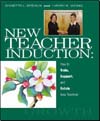

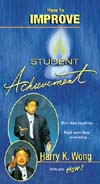



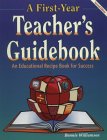
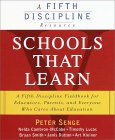

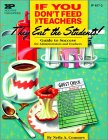
 Effective
Teaching...
Effective
Teaching...